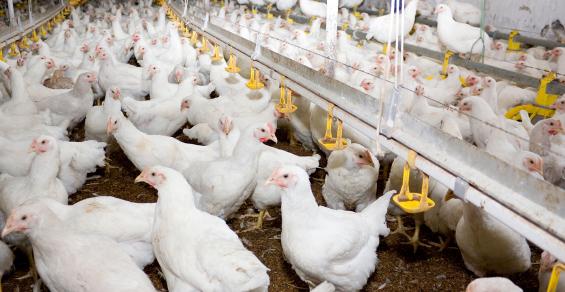Since the last CCC funding transfer in April, there have been detections affecting more than 10.8 million birds.
USDA’s Animal and Plant Health Inspection Service continues its efforts to respond to an outbreak of highly pathogenic avian influenza in the United States. To date, the virus has been confirmed in 35 states, affecting more than 37.9 million domestic birds. APHIS’ response efforts include working closely with animal health officials in affected states to quickly identify and address new cases of HPAI.
To help ensure APHIS can continue to provide critical rapid response activities, Agriculture Secretary Tom Vilsack approved the transfer of $400 million from the Commodity Credit Corporation to APHIS to directly support the response efforts.
“Continuing our nationwide response to highly pathogenic avian influenza is critical to minimizing the impact on our nation’s poultry industry,” says USDA Undersecretary for Marketing and Regulatory Programs Jenny Lester Moffitt. “Safeguarding U.S. poultry and egg producers from the effects avian influenza could have on agriculture and trade is a critical aspect of this response, and this funding will allow APHIS personnel to continue to deploy and support the emergency wherever they are needed.”
The secretary is authorized to transfer funding from available resources (e.g., the Commodity Credit Corporation) to address emergency outbreaks of animal and plant pests and diseases. Vilsack previously approved the use of approximately $130 million in emergency funding in mid-March, along with an additional $263 million in late-April, and APHIS has used these funds to address nationwide HPAI detections to date. These funds have been used to address indemnity, diagnostics, field activities, and other emergency response costs.
Since the last CCC funding transfer was approved in April, there have been detections in 151 new flocks, including flocks in 9 new states, and affecting more than 10.8 million commercial and backyard birds. To date, APHIS has mobilized 1,125 employees both physically and virtually to respond to the outbreak.
HPAI is a serious disease and requires rapid response because it is highly contagious and often fatal to poultry. APHIS and officials from affected states are responding in accordance with Federal and State HPAI response plans, which include implementing quarantine restrictions, depopulating affected flocks, disposing of depopulated birds, cleaning and eliminating the virus from affected premises, and conducting surveillance in surrounding areas.
While these response efforts are vital to ending the outbreak, there are also actions bird owners can take to help stop the spread of this virus. Biosecurity is critical for all bird owners. We encourage bird owners to work to ensure domestic birds do not come into contact with wild birds, and keep poultry confined inside during this high-risk period of migratory bird activity. We also encourage bird owners to limit traffic on and off your farm and use personal protective equipment and disinfection when caring for birds to avoid introducing HPAI.
Source: USDA APHIS, which is solely responsible for the information provided and is wholly owned by the source. Informa Business Media and all its subsidiaries are not responsible for any of the content contained in this information asset.




